The residents of Yola and Maduguri gathered to witness the grand launch of childcare, health and sanitation facilities in the schools designated for married adolescent girls in Adamawa and Borno States on the 16th and 18th of February respectively. These are school crèches, clinics, toilets, bathrooms, kitchenettes, and water boreholes. But if one may ask, what exactly birthed this process?
In 2002, AHI extended her work to northern Nigeria with the aim of expanding access to sexual and reproductive health information and services to underserved youth in this region. A major category of this underserved youth are the married adolescent girls who, in the context of sexual and reproductive health services, have been largely marginalized. AHI embarked on efforts to ensure that married girls are reintegrated to formal schools in North-East Nigeria. In view of the socio-cultural sensitivities that revolve around issues of girl-child education in northern Nigeria, a lot had to be put in place to ensure that the main aim of the project is achieved. Part of this was the selection and training of a hundred women innovators (25 per state) who are indigenes of the four focal states of the project (Adamawa, Bauchi, Borno and Yobe).
Today, these women are socially and economically empowered and stand as role models for married girls. They also advocate in support for married adolescent girls.
These are women who got married when they were adolescents, but were able to continue with their Education in spite of marriage. Today, these women are socially and economically empowered and stand as role models for married girls. They also advocate in support of education for married adolescent girls. So far, the intensive advocacy efforts of these women has yielded tremendous progress; 5 schools designated for married girls in 3 states (Adamawa, Bauchi and Borno), and over 4,000 married girls are being mentored by the women innovators.
As soon as schools were designated for married girls in Adamawa, Bauchi and Borno states, AHI provided basic equipment and supplies for a crèche and clinic. This was to ensure that married girls were not discouraged from enrolling in schools for lack of childcare facilities, and also to ensure that minor ailments are taken care of without then girls necessarily having the girls to boycott classes. It is quite obvious that lack of sanitary facilities affects both girls and boys, but poor sanitary conditions at schools have a stronger negative impact on girls. All girls should have access to safe, clean, separate and private sanitation facilities in their schools, or if they are in a poor state, then many children may rather not attend than use the alternatives. In particular girls who are old enough to menstruate need to have adequate sanitary facilities at school. When this is lacking, they may miss that week and find it difficult to catch up, which makes them more likely to drop out of school altogether. Further more, provision of safe water and sanitation facilities can also have an influence on school enrollment and attendance by girls. The lack of adequate, separate facilities in schools is one of the main factors preventing girls from attending schools, particularly when menstruating.
In view of this, AHI, with further support from the David and Lucile Packard Foundation, took another step and provided one school in Yola and Maiduguri with water borehole, toilets, kitchenettes. Bigger crèches and clinics were also built to accommodate the increasing number of children who are brought to the crèche daily. In Yola, the selected school was school of Islamic and Arabic studies, while women Day Secondary school Maiduguri was also beneficiary. These facilities were officially launched in Yola on February 18. The event in Yola attracted a large turn out of dignitaries including Haijia Zainab Nyako, wife of the Executive Governor of Adamawa state; Haijia Aishatu Bello Tukur, the state commissioner for women affairs; the state permanent secretary, ministry of Education, Comrade Hamman Bello who represented the Hon. Commissioner Ministry of Education, Hon. Gabriel Adama; The Chairman, Adamawa State Health Services Management Board, who was also the chairman of the occasion; a notable religious leader, the Mai Anguwa of Yola, Alhaji Saad Yerima; The Executiove Secretary, Post-Primary Education Board, Alhaji Ahmed Y. Abubakar; The Executive Director of AHI, Mrs Adenike Esiet, The Senior Country Advisor of the David and Lucile Packard Foundation, Dr. Mairo Mandara; Adamawa state Women Innovators, members and staff for Women Adolescent Empowerment (CWAE), The project implemented partner in Yola, Adamawa state. While giving the keynote address, the wife of the Executive Governor of Adamawa state promised to ensure schools are built for married girls in the state. In addition, she donated ten baby walkers and a power-generating set for ease of operation at the school crèche and clinic.
In Maiduguri, the occasion was graced by Dignitaries such as the state commissioner for Education, Hajia Asabe Bashir who represented the Borno state First Lady, Hajia Fatimo Ali Modu Sheriff; Hajia Laraba Dagash, an elder stateswoman and a one-time Minister for Women Affairs; officials from the Maiduguri School of Nursing and Midwifery; Religious leaders; the AHI Executive Director; the Senior Country Advisor for the David and Lucile Packard Foundation, Dr. Mairo Mandara; Borno.

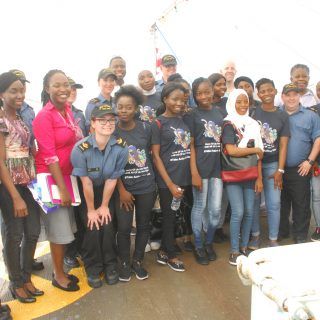

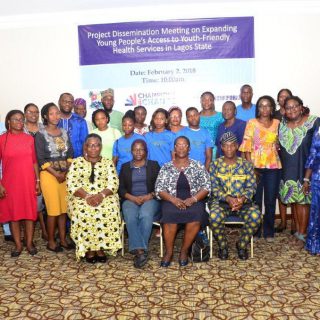
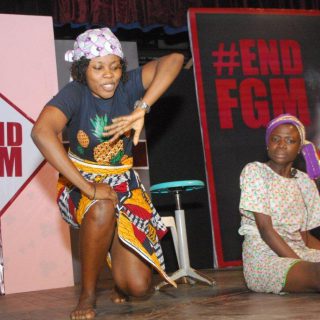
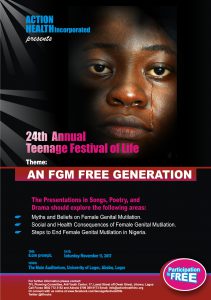
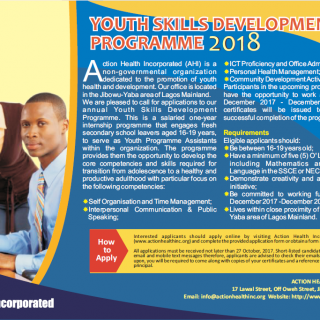
You must be logged in to post a comment.